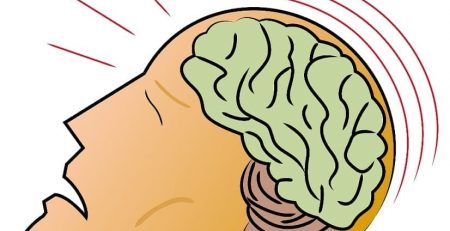How Do Humans Live So Long?
People often assume that human beings naturally started to live longer as they aged and life changed and got easier. In addition they attribute this growth in the human life span to the increases in medical technology, vaccines and increases in food. While this is certainly true this is not the only piece to the puzzle. In addition we have all heard tales of people long ignoring any common health rules and living to ripe old ages.
Compared to other primates human beings live a very long time. The prime mate with the longest average life span besides humans is the chimpanzee and they only live to be 13 years old on average, while the average human is now living to be 74. Caleb Finch who is a biologist from the University of Southern California – Davis has a highly controversial new theory. Finch has hypothesized that these developments began a very long time ago and are more so a result of our human ancestors evolving a powerful and ever evolving defense system. The basic hypothesis is that as human ancestors began to consume meat they started to evolve and absorb defenses against the pathogens which existed in the meat. However, while these defenses may help us to grow and develop long lives the theory is that it results in many of the diseases we experience later in life.
There have been past studies that have also shown such info. Previous research (Nicholas Blurton-Jones, 1985) of hunter gather tribes showed evidence that the average age of these tribes while the average age was only 32.7 years the overall society showed a j hook. If you reached adult hood successfully in these tribes, you would be able to often live another 40 years. Some of the elders reached ages into their 80’s and this was while living in primal conditions (no running water, sewage systems, etc) and with no medical treatment.
Another study done by Rachel Caspari of Central Michigan University and Sang-Hee Lee of UC Riverside explored 768 individual from 4 diverse ancestral groups that were millions of years apart. They tried to reasonably conclude the age using dental wear records. What they found is that living to beyond 30 only became common in the more recent past.
Caleb Finch and his colleague Eileen Crimmins decided to look into historical records. The earliest known records they could find were from 1751 Sweden. What they found was that while the average age was only 35. However, those who lived into their 20’s would on average live an additional 40 years.
Chimpanzees spend most of their time consuming plants and small animals that have little meat. Finch believes it is likely that early human beings had a similar diet. At some point humans began to eat high meat diets. These diets with an increased amount of calories and protein helped brain growth and increased potential infections. These infections are part of the basis of Finch’s theory because he believes that risks exposed our ancestors to pathogens that helped to help us live longer.
Finch studied the difference between humans and chimpanzees in order to try to find the difference. Humans and chimpanzees have a 99% comparable genome to human beings. Finch thus began at what genes differed in order to try to find the difference in average age lived. The one that stuck out to him where the changes in the apolipopprotein E (APOE) gene. It has 4 commons variants that result in human beings and the most common are APOE e3 and APO e4. One of APOE e4 characteristics is that it quickly ramps up fever in humans which helps to stop the spread of viruses. Thus giving humans the ability to fend off harmful microbes and avoid getting sick. APOE e4 also helps to store fat efficiently which also came in handy in ancient times.
While this variant seems to provide these characteristics and help we live longer it basically results in a supercharged immune system. Finch believes this super charged immune system is to blame for such common problems as hardened arteries (Atherosclerosis). In studying the ancient mummies from around the world (Egypt, South America) the team concluded that the Atherosclerosis was most likely due to the high level of infection and inflammation in pre modern times. Finch believes this shows that the same gene variant APOE e4 which allows us to live longer also causes heart attacks, strokes and Alzheimer’s later in life.
The other major variant APOE e3 (60 to 90 percent of people have it) also emerged and this variant tends to slow the inflammatory response and make it less hyper than APOE e4. The people with variant now live an average of 6 years more than people with APOE e4 variant.
While all of this information does not draw a conclusion (sorry), it does raise new questions and provide new info. However, the main question is that people continue to expect human longevity to grow. People are predicting that babies born in this era will live to be well over a 100. However, does human longevity have a natural cap built into due to our own immune system? Or will similar variants develop that control inflammation and fight the process of human diseases forming as a result of the immune system working so much.
Well something to think about and explore, put those brains to work everybody.














